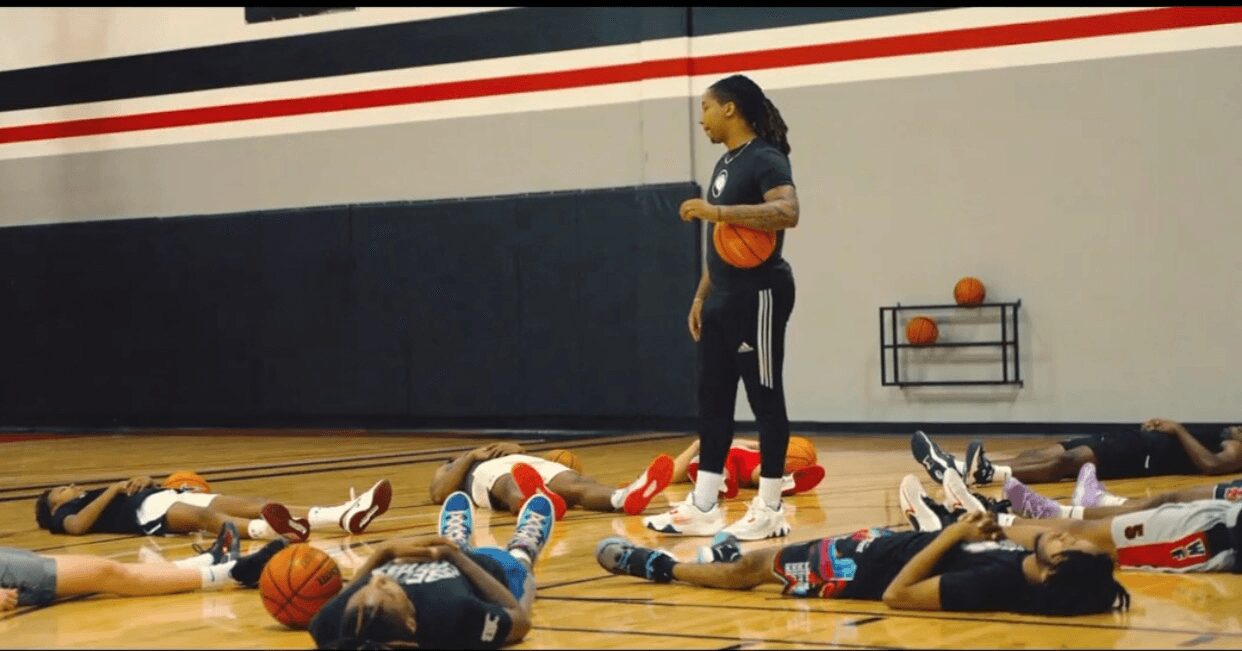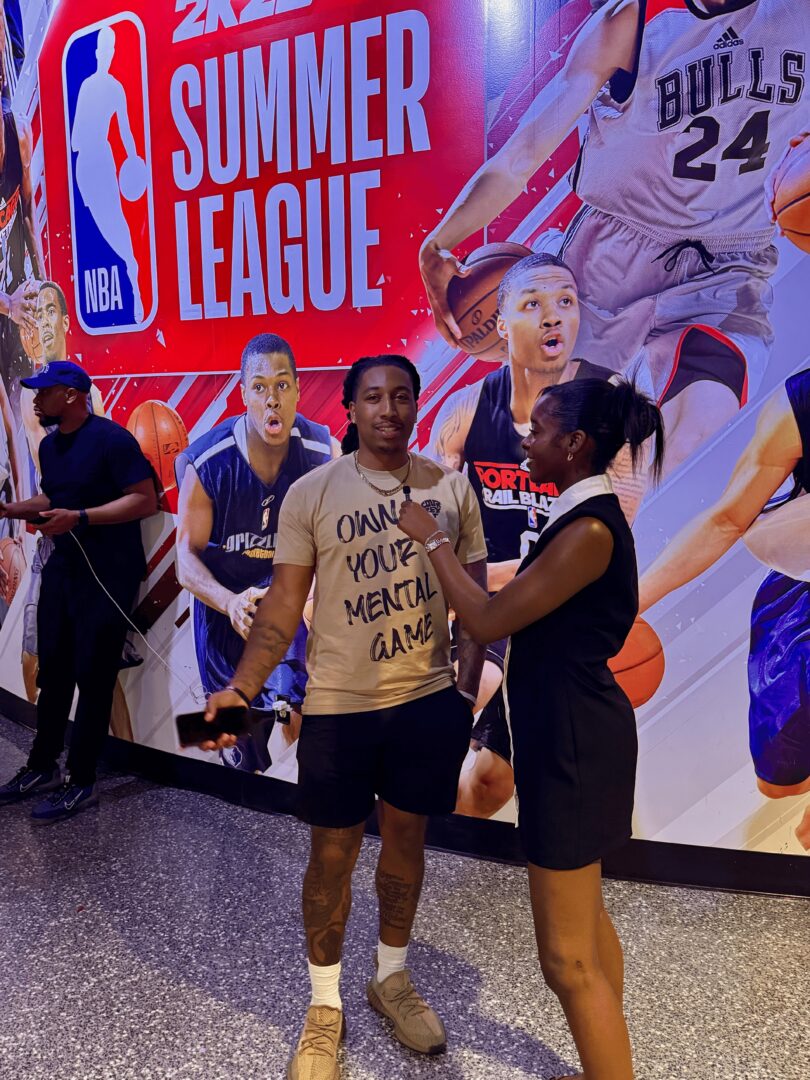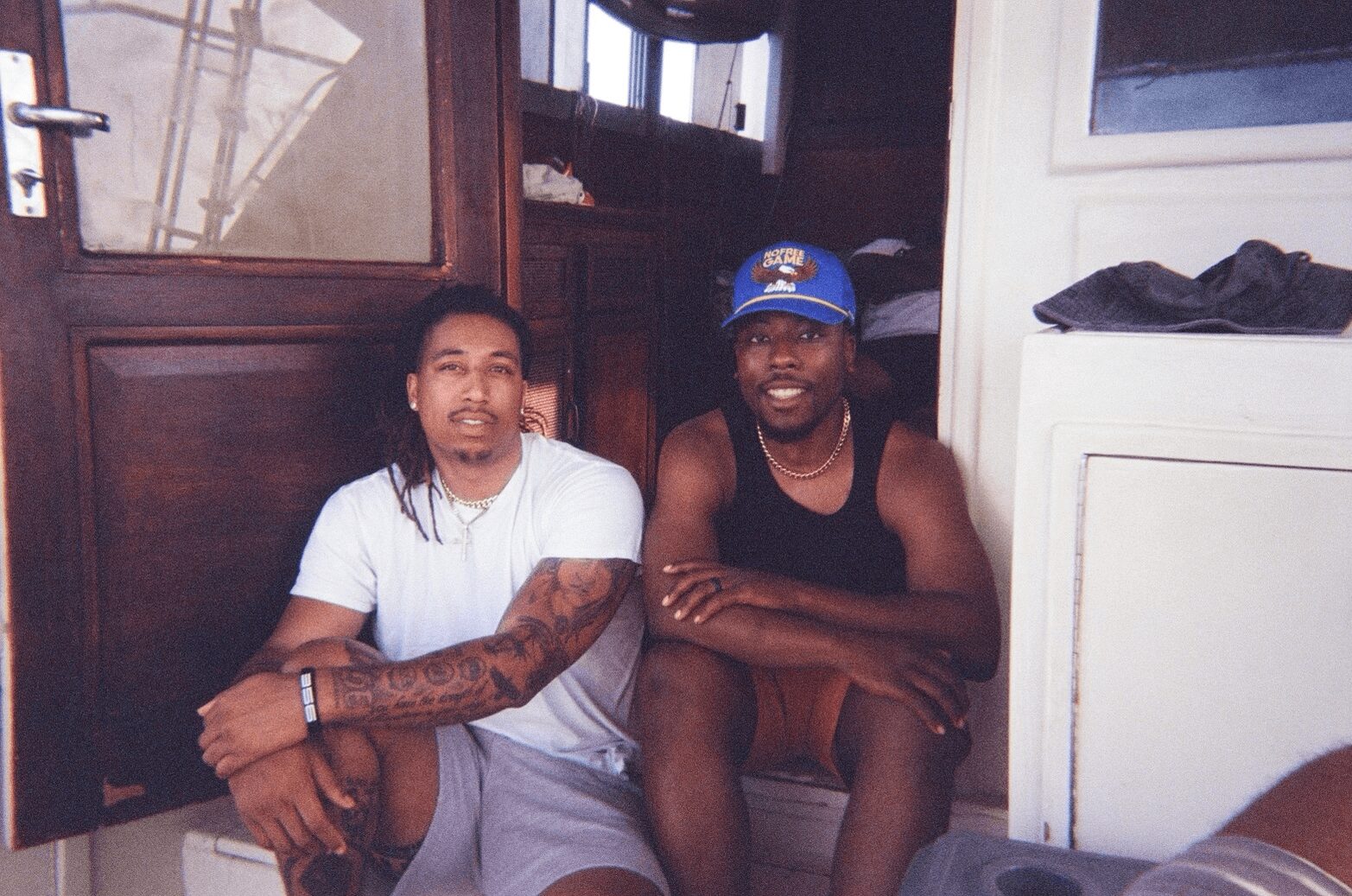Alright – so today we’ve got the honor of introducing you to Aren Ulmer. We think you’ll enjoy our conversation, we’ve shared it below.
Aren, thank you so much for joining us today. Let’s jump right into something we’re really interested in hearing about from you – being the only one in the room. So many of us find ourselves as the only woman in the room, the only immigrant or the only artist in the room, etc. Can you talk to us about how you have learned to be effective and successful in situations where you are the only one in the room like you?
As an African American male and a former athlete in the sport psychology field, being the only one in the room who looks like me is something I’ve grown accustomed to. Instead of letting it hold me back, I’ve figured out how to turn it into an advantage.
First, I’ve learned to view my unique perspective as a strength. My experience as a Black athlete gives me insights that others might not have, allowing me to connect with athletes on a deeper level. This connection can be a game-changer in how effective I am at my work. Confidence has also been essential. I’ve had to trust in my skills and what I bring to the table, regardless of who else is in the room. It’s about being prepared, staying current in my field, and not questioning my worth. When I step into a space, I focus on my contributions rather than how I might be perceived.
Finally, I’ve come to embrace the fact that being the only one in the room positions me to drive change. I’m committed to making it easier for others who look like me to enter this field. It’s not just about succeeding for myself; it’s about paving the way for the next generation.
So, while it’s not always easy, I’ve learned to turn that challenge into a source of strength. By staying true to who I am, continuously honing my skills, building a supportive network, and advocating for greater diversity in sport psychology, I’m making my impact.

Thanks, so before we move on maybe you can share a bit more about yourself?
At Courtex Performance, I work as a mental performance coach, helping athletes, business professionals, and entertainers tap into their full potential by taking ownership of their mental game. What excites me most about this work is seeing people transform as they build confidence, focus, and resilience. It’s about more than just improving performance; it’s about holistic development—helping clients achieve success in every aspect of their lives.
What makes us stand out is our personalized and comprehensive approach. Recognizing that each individual is unique, whether you’re an athlete striving for peak performance, a business leader aiming to sharpen your edge, or an entertainer seeking to manage the pressures of the spotlight. We tailor our coaching to meet your specific needs, blending cutting-edge mental performance strategies with a focus on overall wellness. This isn’t just about performing better; it’s about thriving in every sense—mentally, emotionally, and physically.
My biggest passion is about empowering you to reach your highest potential, whether in the arena, the boardroom, or on stage. The main goal is to support your journey toward peak performance and lasting wellness. If you’re ready to elevate your game and develop a stronger, more resilient mindset, I’m here to help you every step of the way.

If you had to pick three qualities that are most important to develop, which three would you say matter most?
Looking back, the three qualities that made the biggest impact on my journey are resilience, adaptability, and the ability to connect with people. These have been game-changers for navigating both challenges and opportunities.
1. Resilience:
Resilience has been key in handling setbacks and bouncing back from tough situations. The ability to learn from failures and keep pushing forward is crucial. For anyone starting out, my advice is to embrace challenges as chances to grow. Resilience isn’t about avoiding failure; it’s about recovering quickly and using those experiences to come back stronger. Build a mindset that sees obstacles as temporary and fixable, and you’ll develop the resilience you need to succeed.
2. Adaptability:
Being able to adapt to new situations has been another major factor in my journey. Whether it’s learning new skills, shifting strategies, or adjusting to unexpected changes, flexibility has kept me moving forward. For those just starting out, I’d say, always be ready to learn and pivot. Stay curious, be open to new ideas, and don’t be afraid to switch things up when needed. The more adaptable you are, the better you’ll handle whatever comes your way.
3. Connection:
Building strong connections has made a huge difference in my journey. Whether it’s forming real relationships with clients, mentors, or peers, being able to connect with people on a genuine level has opened doors and created new opportunities. My advice for those early on is to focus on building and nurturing your network. Listen more than you talk, show genuine interest in others, and find ways to add value to their lives. Solid connections can offer support, guidance, and opportunities that will help you grow personally and professionally.
To sum it up, work on building resilience, staying adaptable, and making authentic connections. These qualities will not only help you navigate challenges but also set you up to thrive in the long run.

Do you think it’s better to go all in on our strengths or to try to be more well-rounded by investing effort on improving areas you aren’t as strong in?
I’m a big believer in going all in on your strengths rather than trying to be well-rounded by focusing on areas where you’re not as strong. Here’s why:
Your strengths are what make you unique. When you double down on what you’re naturally good at, you can reach a level of excellence that’s hard to achieve when you’re trying to be good at everything. Focusing on your strengths lets you maximize your potential and really stand out.
In my own journey, I’ve seen this firsthand. Early on, I tried to improve everything, thinking it would make me more versatile. But I ended up spreading myself too thin and not really excelling in any one area. It wasn’t until I started leaning into my strengths—like connecting with people, understanding performance psychology, and communicating complex ideas in a relatable way—that I started to see real success.
For example, when I was starting my career, I initially spent a lot of time trying to level up skills in areas I wasn’t naturally inclined, thinking I needed to be a jack-of-all-trades to be successful. But when I shifted my focus to what I was already good at—coaching, building relationships, and branding—I saw way more growth. I set aside the areas I wasn’t strong in, which freed me up to really hone in on what I do best.
That doesn’t mean you should ignore your weaknesses. It’s important to be aware of them and improve them enough so they don’t hold you back. But most of your energy should go into amplifying your strengths. That’s where you’ll see the biggest returns and the most satisfaction.
So my advice? Identify your strengths, invest in them, and build a team that complements you in areas where you’re not as strong. This approach not only helps you excel but also brings out the best in the people around you.
Contact Info:
- Website: https://www.courtexperformance.com
- Instagram: @arenulmer
- Linkedin: https://www.linkedin.com/in/aren-ulmer/
- Twitter: https://x.com/ArenJUlmer
- Other: The Mental Game in Sports with Aren Ulmer – https://sportsepreneur.com/mental-game-in-sports-aren-ulmer/Building Wealth in Mental Health [Audio Podcast].. https://www.youtube.com/watch?v=cP6pPjZvRN8
The Sport Psychology Of. https://podcasters.spotify.com/pod/show/gabriel-zelico/episodes/Shot-Clocks–Aren-Ulmer–Dr–Dave-Laughlin-e2hukl4


Image Credits
Ava Studios
Void Media
so if you or someone you know deserves recognition please let us know here.



